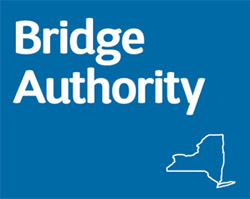
The New York State Bridge Authority (NYSBA) expects to bring in over $900,000 over the course of the next ten years in revenue from dark fiber leases. The agreements, which allow private companies to access publicly owned dark fiber spanning the bridges, will also help maintain low tolls and allow regional telecom operators to expand their data transmission networks. The NYSBA announced on August 4 that it would be leasing dark fiber on two new bridges – the Bear Mountain and Rip Van Winkle bridges in upstate New York. These will be the third and fourth NYSBA bridges that generate revenue from fiber leasing.
The NYSBA dark fiber leasing program is now in its fifth year. Since the Authority does not receive any state or federal tax money for the operation and maintenance of its bridges, it has sought creative solutions to finance the upkeep of its infrastructure. It has now leased dark fiber on four of five intended bridges, with plans to lease more on a fifth – the Kingston-Rhinecliff Bridge – in the near future.
In March, the Authority leased the Newburgh-Beacon Bridge to QCSTelecom, Inc. for $535,000. While such dark fiber leases are one-time fees, and usually last for at least ten years, the immediate benefit to the community takes the form of lower tolls for everyone who crosses the bridge. One editorial, posted in the Daily Mail, considered the locally-scaled benefits of the project:
Locally, we don’t have much to worry about from another toll hike in the immediate future. Although the lease won’t replace tolls as a principal source of revenue, it will help the bottom line and help keep tolls at current level. It’s clear that getting to the other side of the Hudson River can be costly over time and, as energy and transportation costs rise, we are not prepared for another toll hike. But with the success of the dark fiber leasing program, now in its fifth year, we can believe with some certainty that the drive to Columbia County won’t cost more.
The NYSBA’s strategy seems to be working at keeping tolls low – really low. Kathy Welsh reported in the Hudson Valley News Network that the $1.25 toll on Authority bridges is lower today (in real dollars) than it was in 1925 when the NYSBA started operations.
The success of the NYSBA dark fiber leasing project points to the economic viability of dark fiber networks. Dark fiber networks appeal to both proponents of municipally owned networks and private sector telecom advocates. We wrote about the growing interest in dark fiber in July.
In places like Ammon, Idaho dark fiber infrastructure has provided a major economic spark, as Susan Crawford reports in Backchannel:
For cities, the existence of dark fiber networks — basic, passive infrastructure available on a neutral basis to any operator — could drive down retail access prices, make available reliable, world-class communications to every business and residence, and cause a steady stream of leasing revenue to flow into city coffers.
Dark fiber networks can be a safer investment than city-wide lit fiber infrastructure, and, as the NYSBA project shows, can have a positive economic impact. The project already boasts revenues of over $2 million in less than five years. However, the gains from a dark fiber network across an entire city tend to be more limited than lit services. Unless a community is willing to take dark fiber to every residence as Ammon is, the dark fiber seems to only appeal to a limited number of businesses.
But when it comes to crossing bridges – or other challenging crossings like interchanges and railroads, passive strategies like conduit or dark fiber may be a very smart investment.
This article is apart of MuniNetworks. The original piece can be found here


